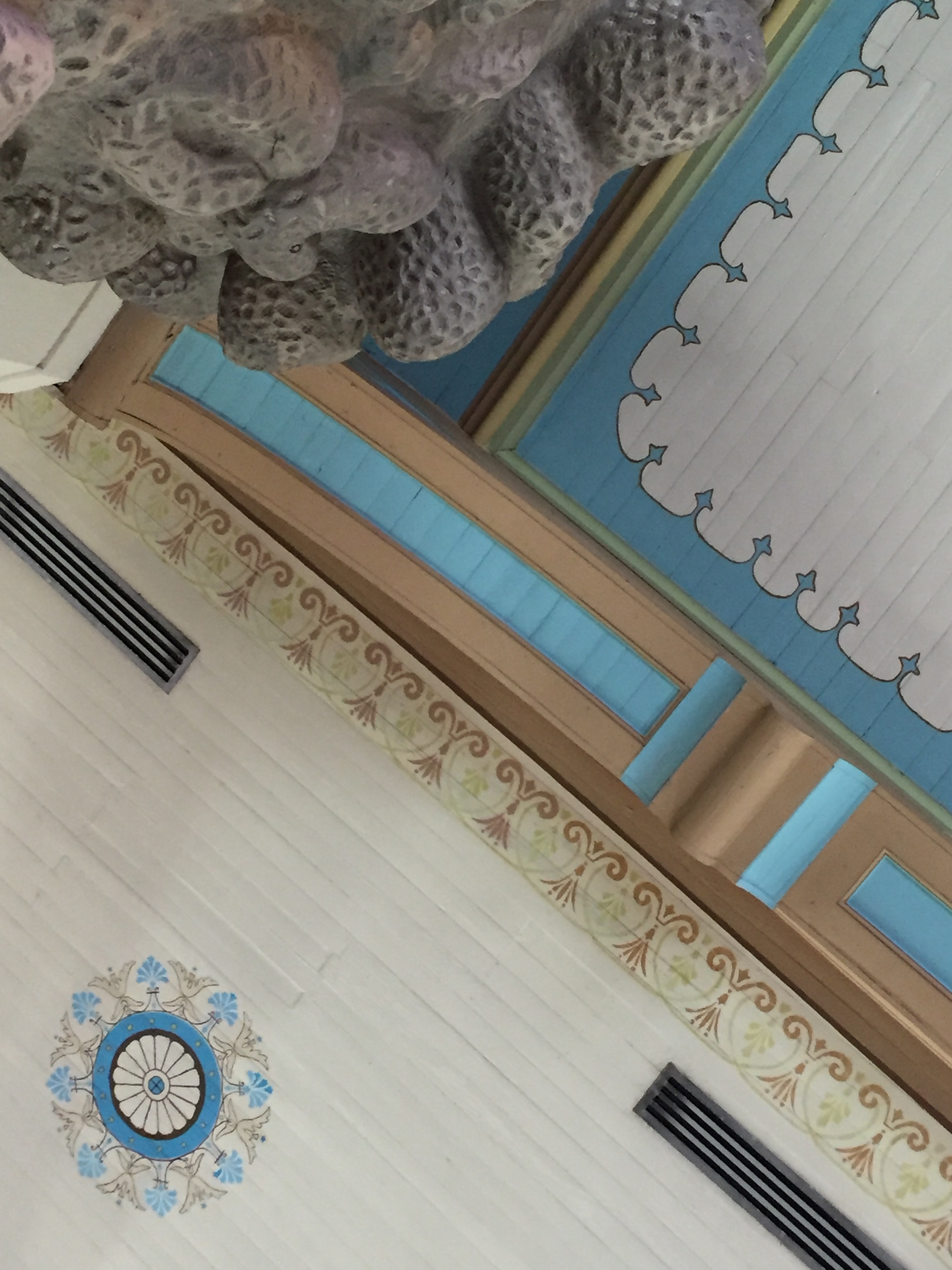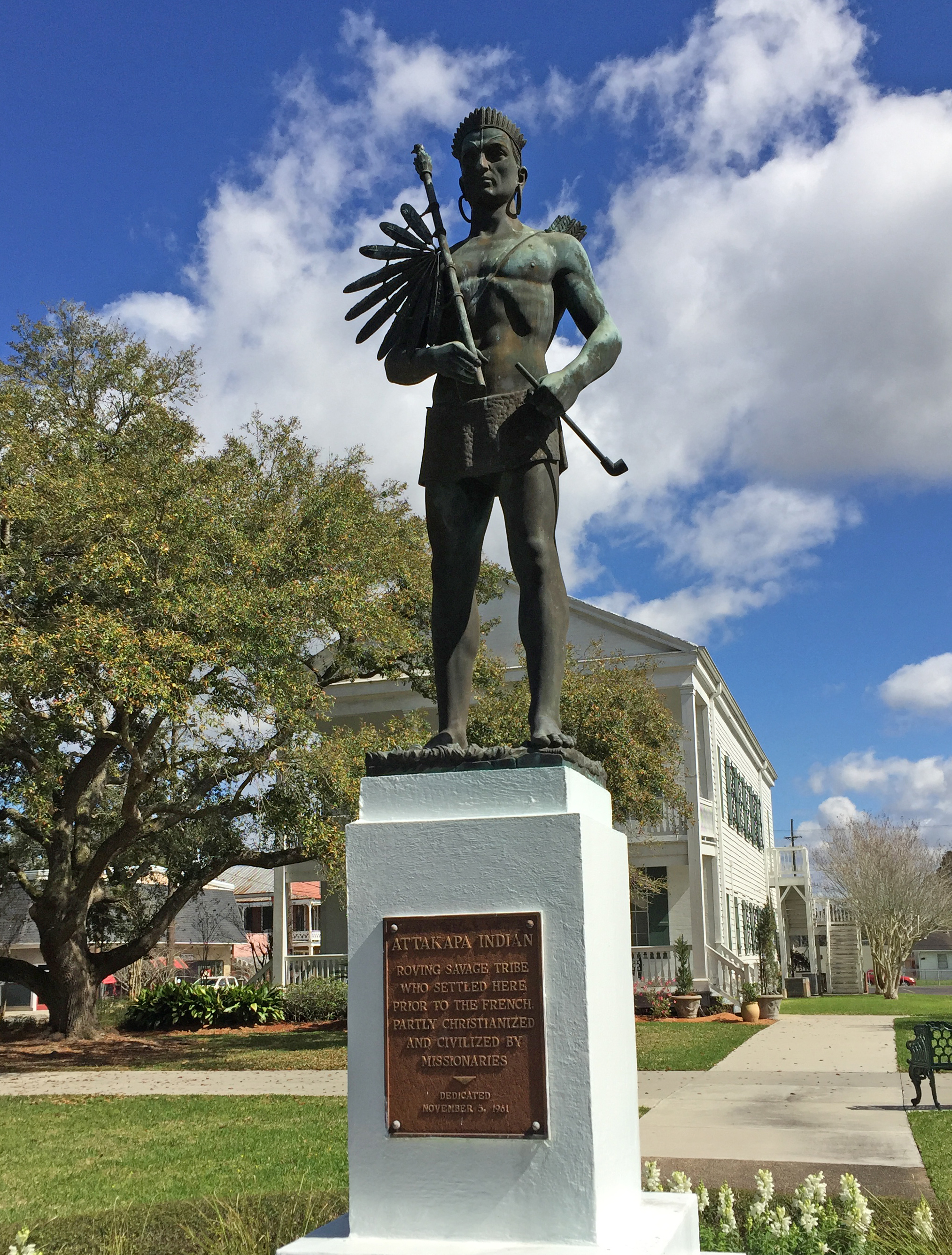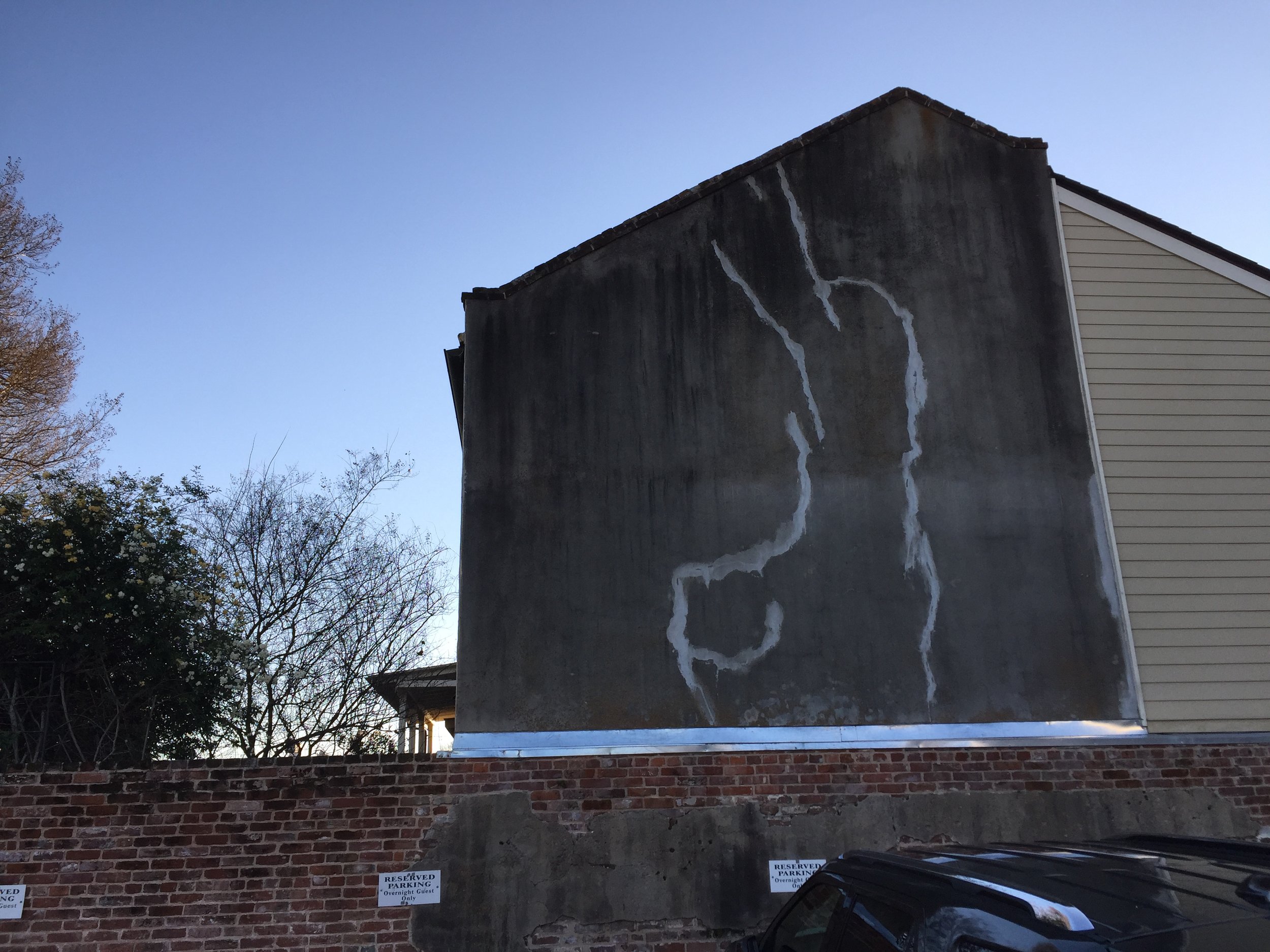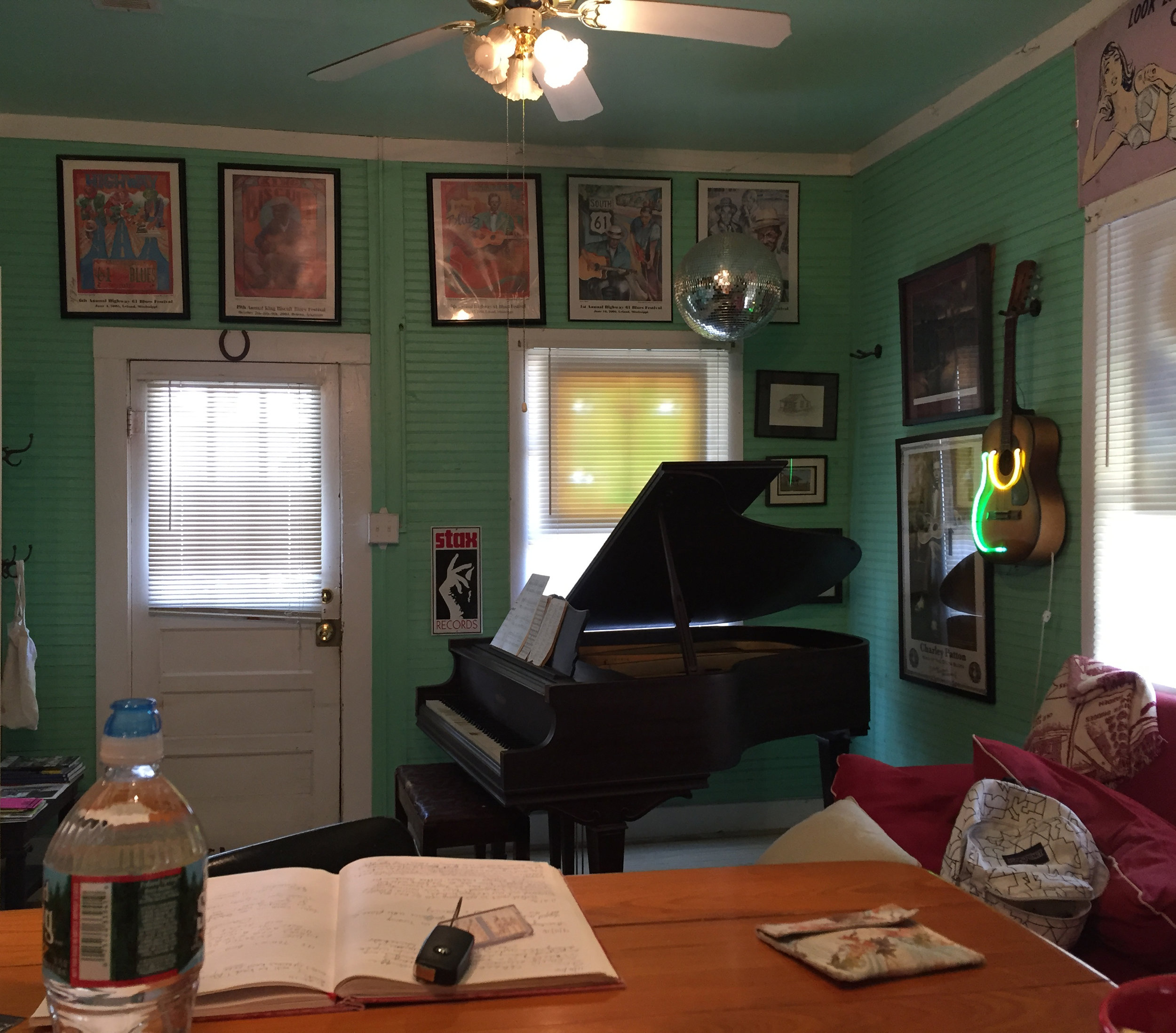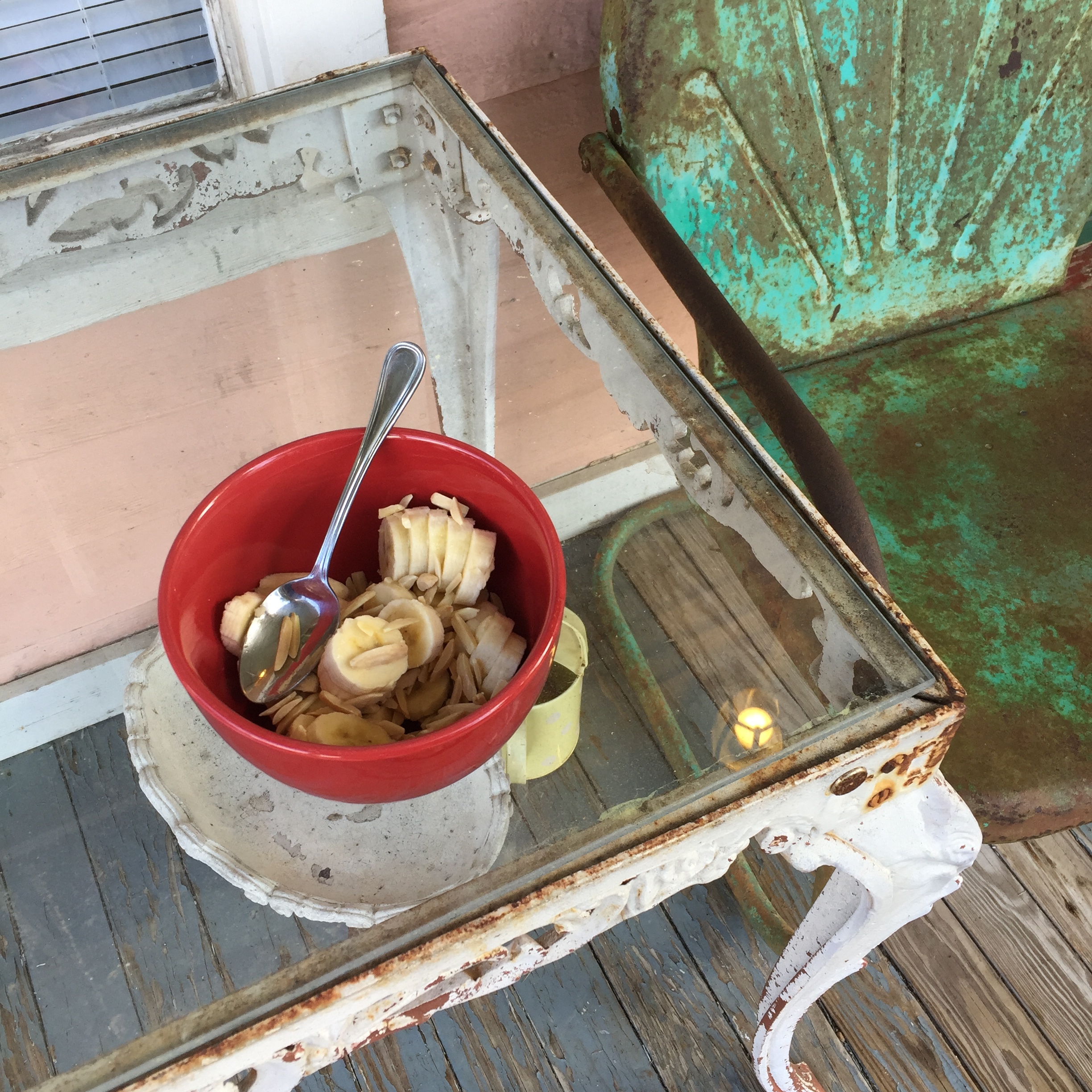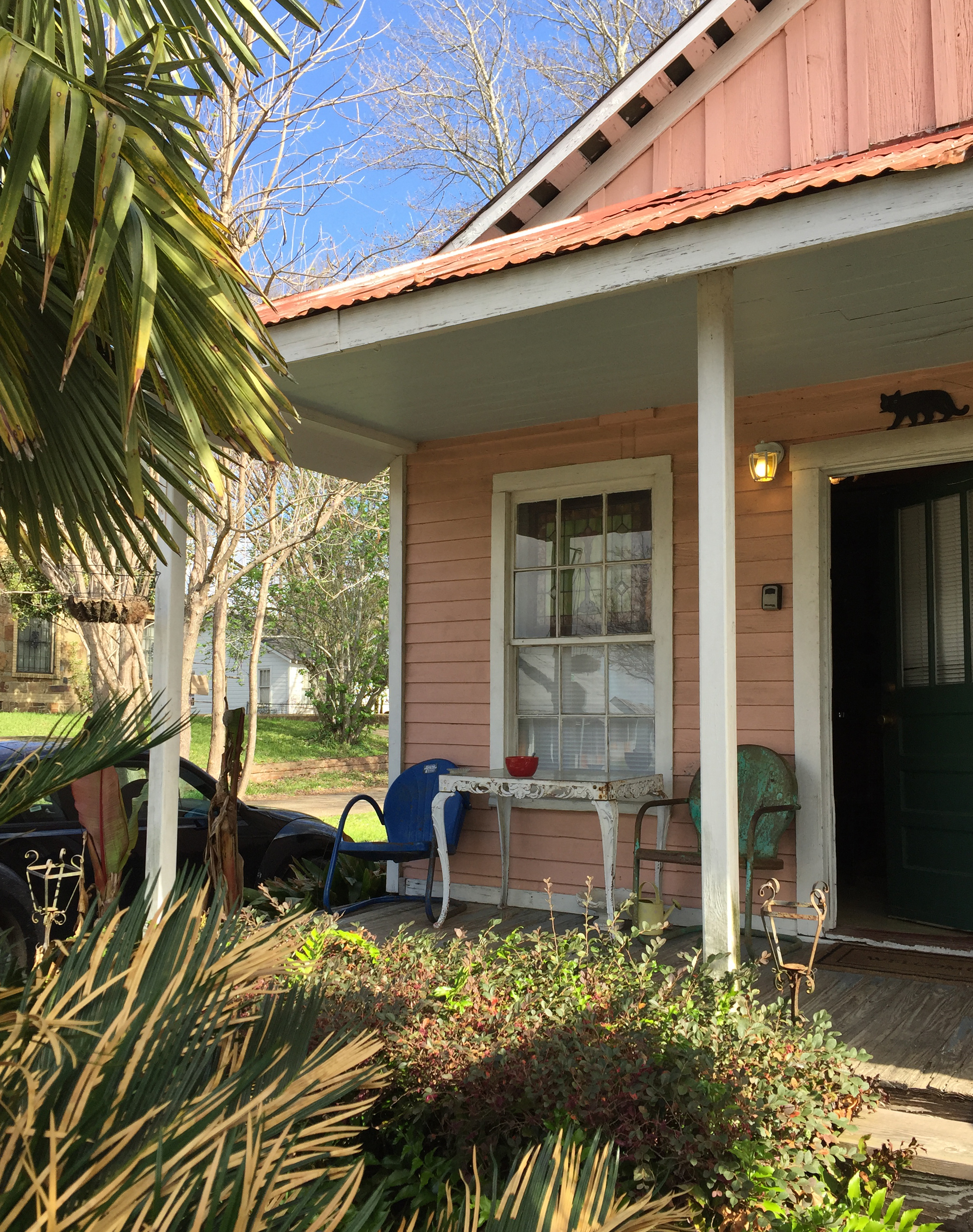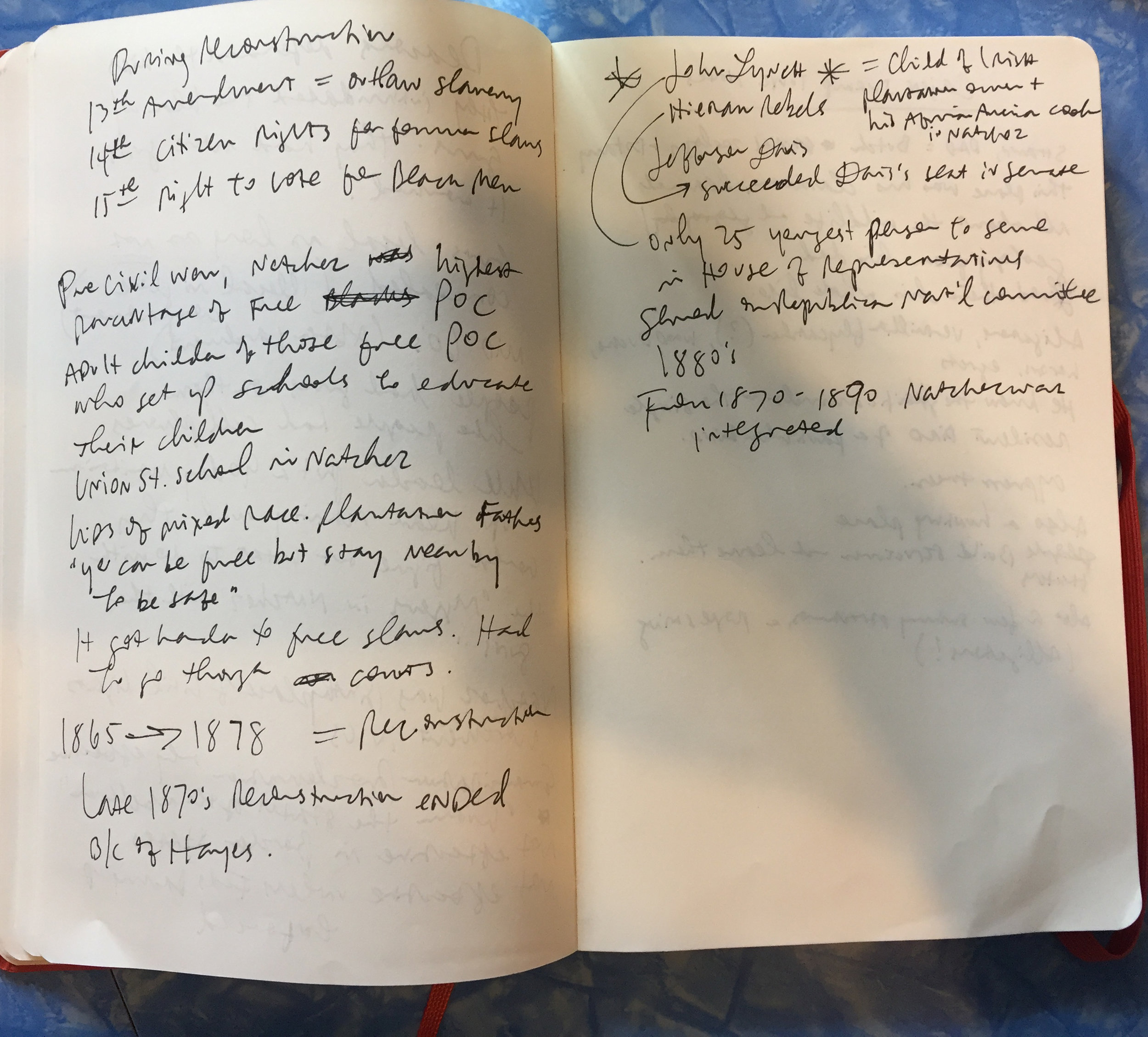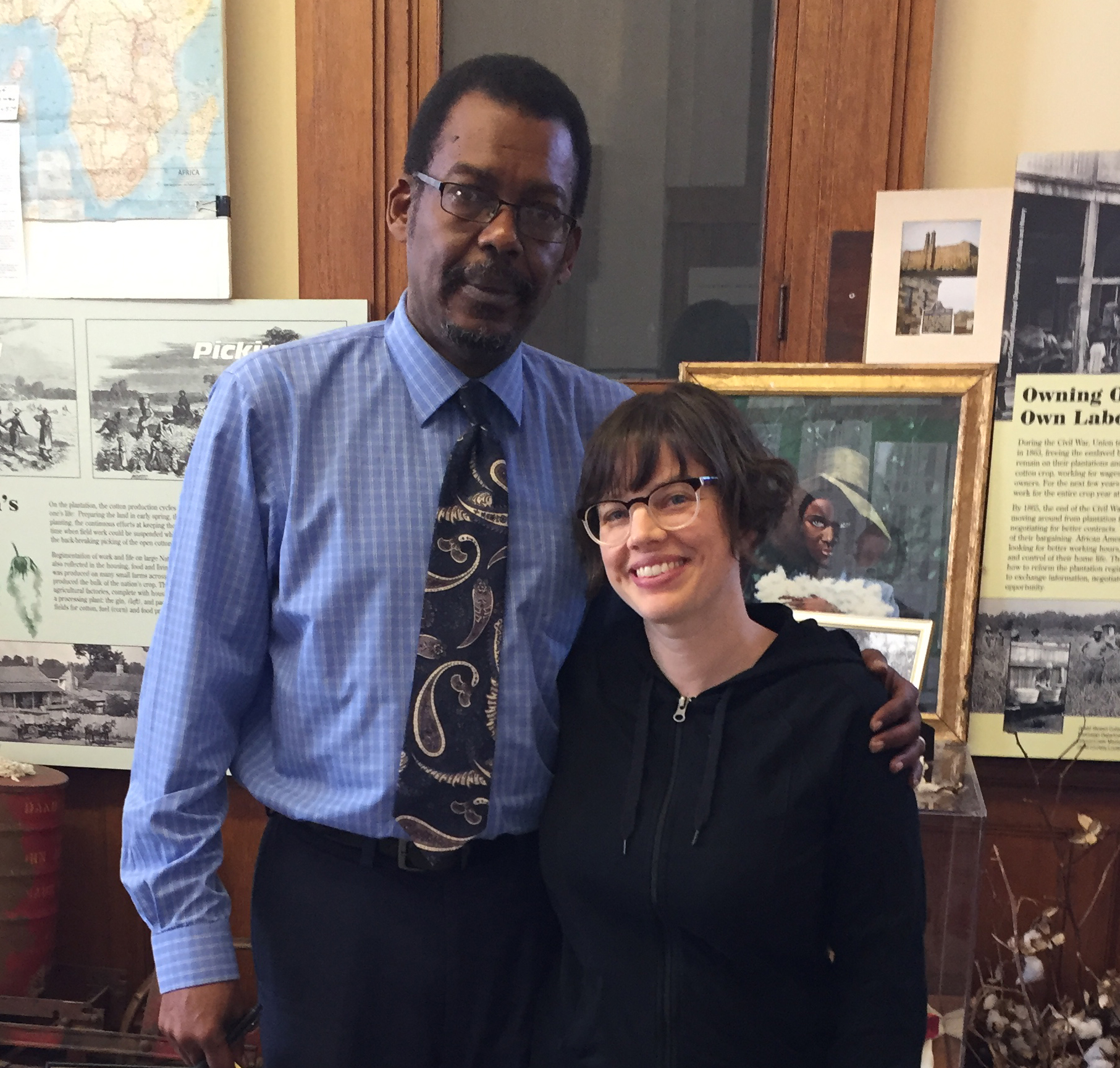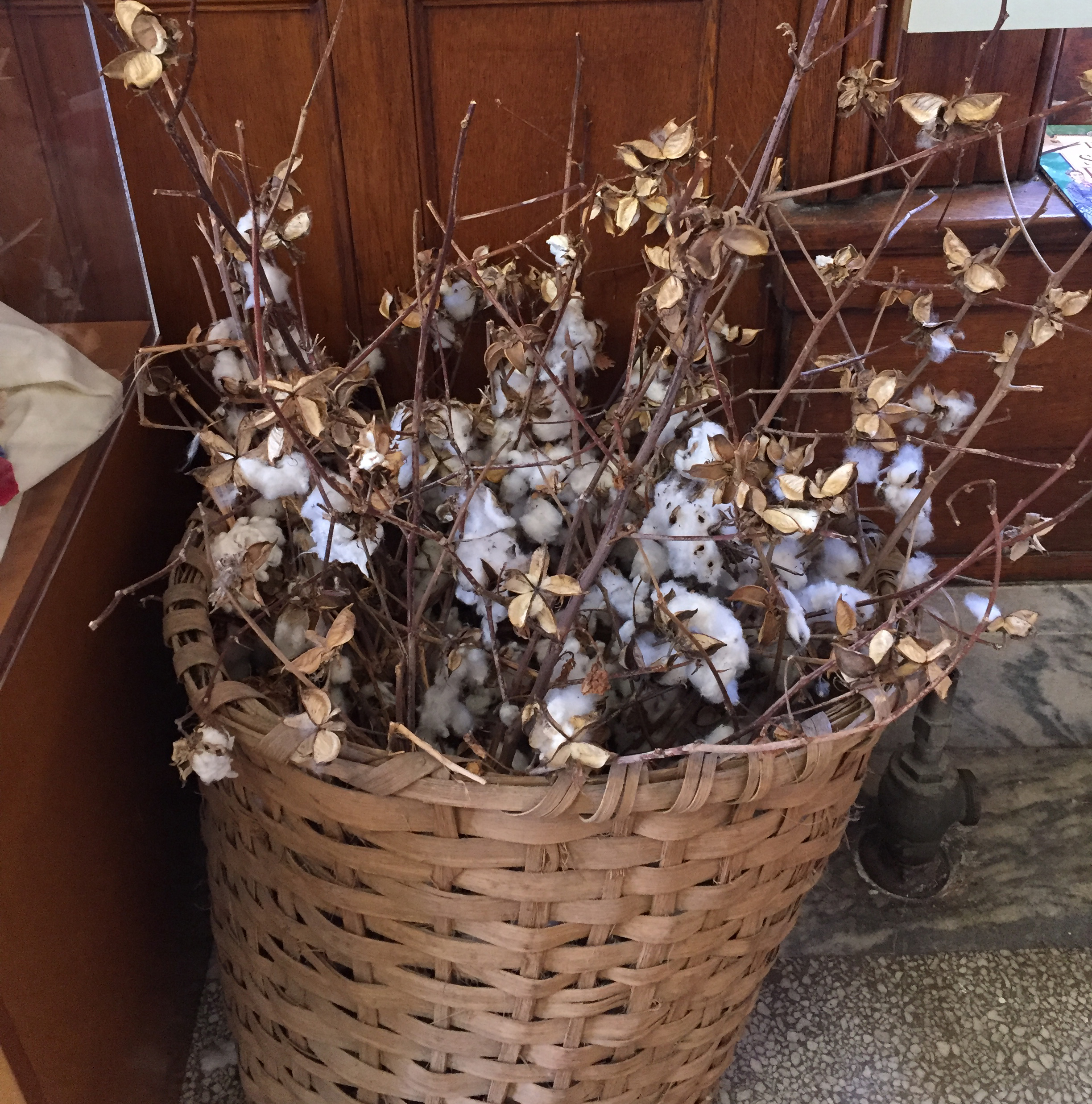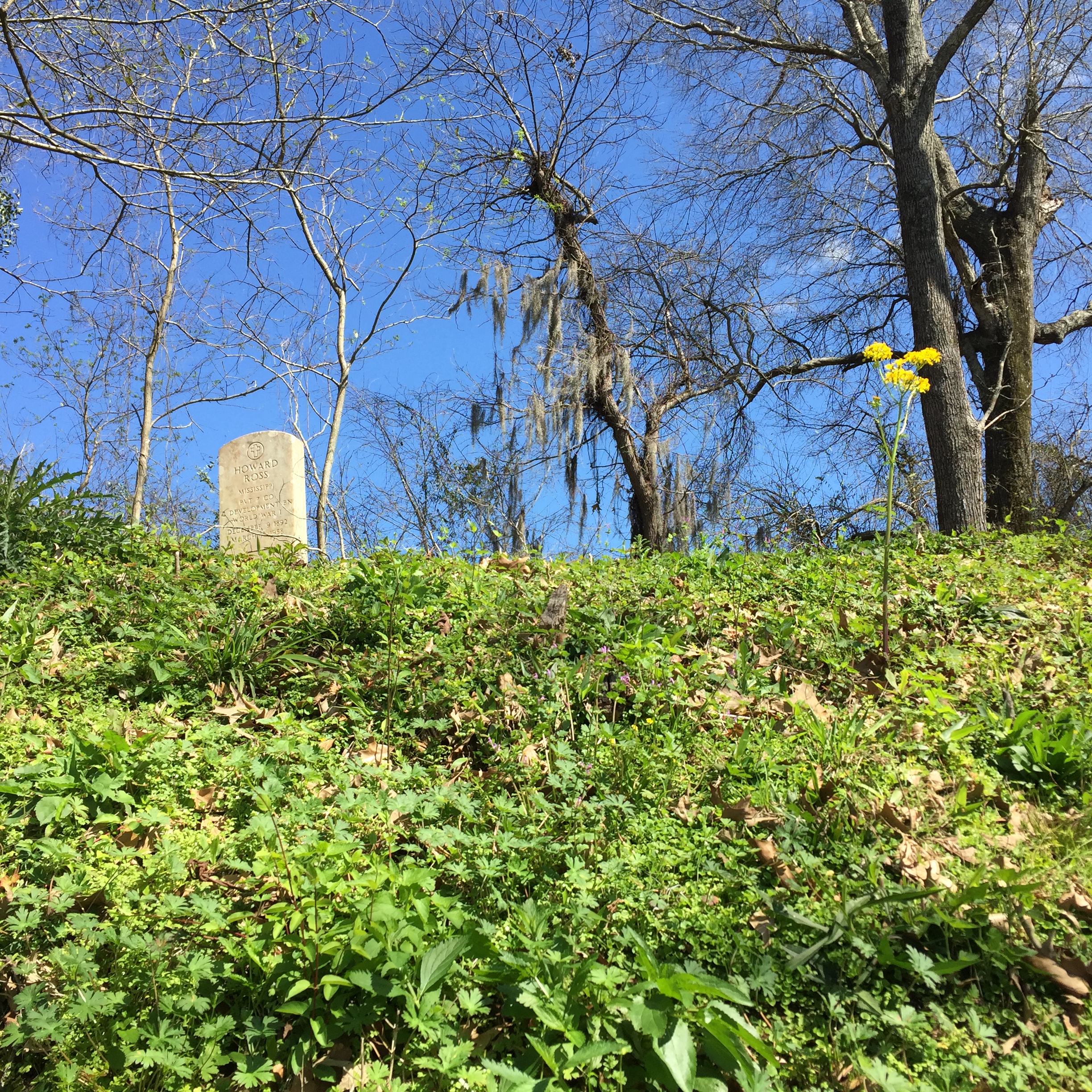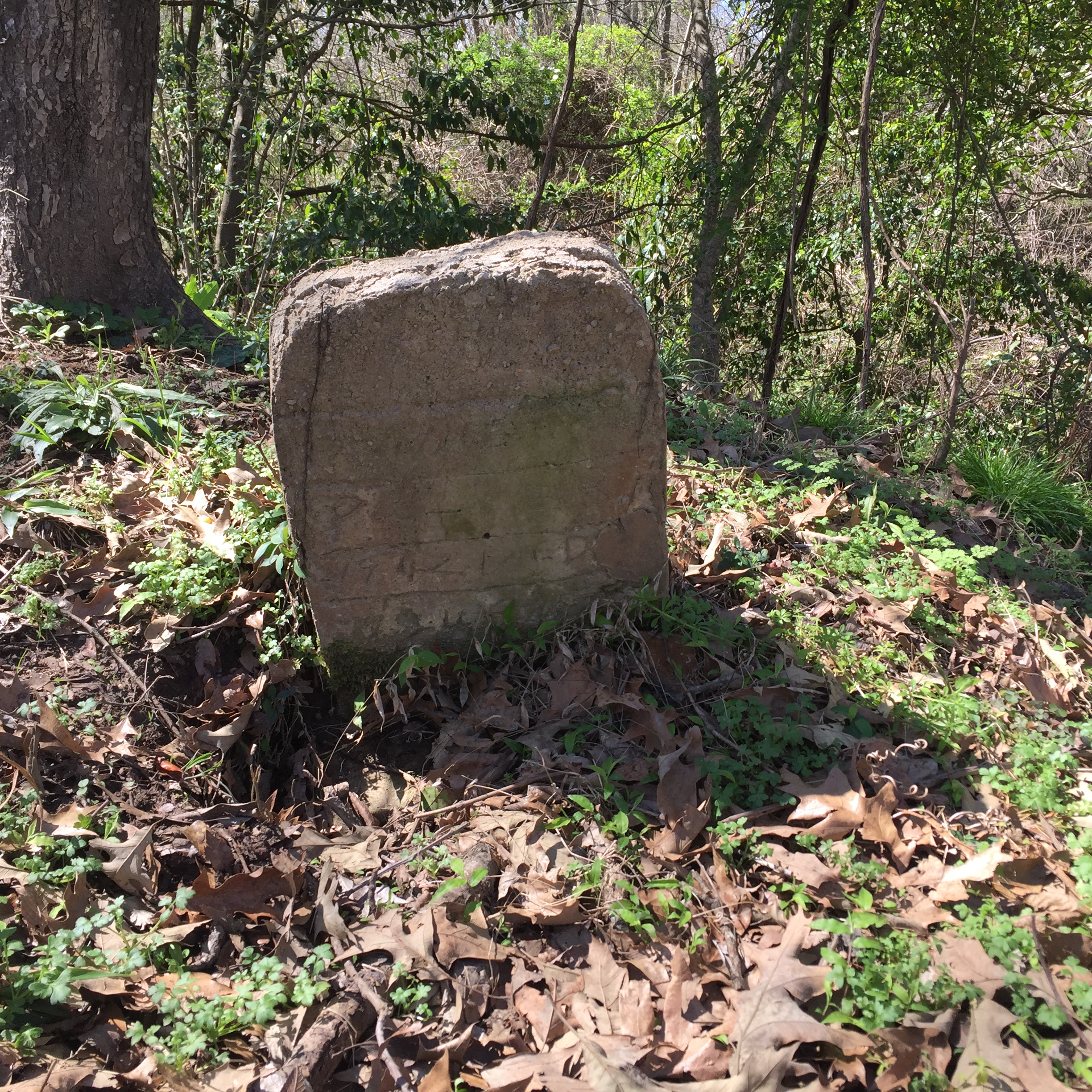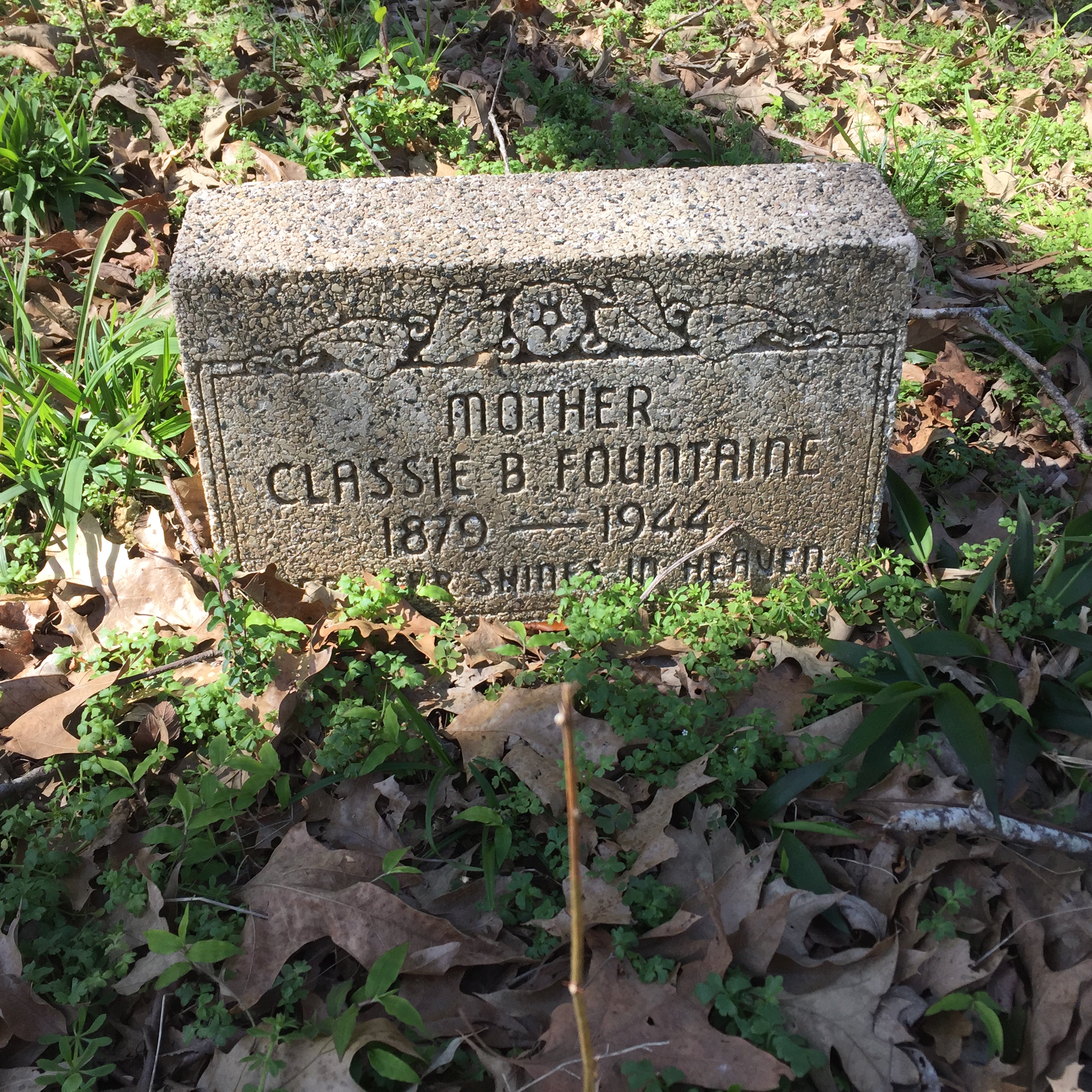Let Us Now Praise Famous Men is the result of weeks James Agee (writer) and Walker Evans (photographer) spent living with poor, white sharecroppers in Alabama in summer 1936.
Agee writes about this church that he and Evans come across on the side of the road, which "shocked us with its goodness straight through the body." It is closed, and they want to get inside, to document its loveliness:
"While we were wondering whether to force a window, a young negro couple came past up the road. Without appearing to look either longer or less long, or with more or less interest, than a white man might care for, and without altering their pace, they made thorough observation of us, of the car, and of the tripod and camera. We spoke and nodded, smiling as if casually; they spoke and nodded, gravely, as they passed, and glanced back once, not secretly, nor long, nor in amusement. They made us, in spite of our knowledge of our own meanings, ashamed and insecure in our wish to break into and possess their church, and after a minute or two I decided to go after them and speak to them, and ask them if they knew where we might find a minister or some other person who might let us in, if it would be all right. They were fifty yards or so up the road, walking leisurely, and following them, I watched aspects of them which are less easily seen (as surrounding objects are masked by looking into a light) when one's own eyes and face and the eyes and face of another are mutually visible and appraising. They were young, soberly buoyant of body, and strong, the man not quite thin, the girl not quite plump, and I remembered their mild and sober faces, hers softly wide and sensitive to love and to pleasure, and his resourceful and intelligent without intellect and without guile, and their extreme dignity, which was as effortless, unvalued, and undefended in them as the assumption of superiority which suffuses a rich and social adolescent boy; and I was taking pleasure also in the competence and rhythm of their walking in the sun, which was incapable of being less than a muted dancing, and in the beauty in the sunlight of their clothes, which were strange upon them in the middle of the week. He was in dark trousers, black dress shoes, a new-laundered white shirt with lights of bluing in it, and a light yellow, soft straw hat with a broad band of dark flowered cloth and a daisy in the band; she glossy-legged without stockings, in freshly whited pumps, a flowered pink cotton dress, and a great sun of straw set far back on her head. Their swung hands touched gently with their walking, stride by stride, but did not engage. I was walking more rapidly than they but quietly; before I had gone ten steps they turned their heads (toward each other) and looked at me briefly and impersonally, like horses in a field, and faced front again; and this, I am almost certain, not through having heard sound of me, but through a subtler sense. By the time I raised my hand, they had looked away, and did not see me, though nothing in their looking had been quick with abruptness or surreptition. I walked somewhat faster now, but I was overtaking them a little slowly for my patience; the light would be right by now or very soon; I had no doubt Walker would do what he wanted whether we had 'permission' or not, but I wanted to be on hand, and broke into a trot. At the sound of the twist of my shoe in the gravel, the young woman's whole body was jerked down tight as a fist into a crouch from which immediately, the rear foot skidding in the loose stone so that she nearly fell, like a kicked cow scrambling out of a creek, eyes crazy, chin stretched tight, she sprang forward into the first motions of a running not human but that of a suddenly terrified wild animal. In this same instant the young man froze, the emblems of sense in his wild face wide open toward me, his right hand stiff toward the girl who, after a few strides, her consciousness overtaking her reflex, shambled to a stop and stood, not straight but sick, as if hung from a hook in the spine of the will not to fall for weakness, while he hurried to her and put his hand on her flowered shoulder and, inclining his head forward and sidewise as if listening, spoke with her, and they lifted, and watched me while, shaking my head, and raising my hand palm outward, I came up to them (not trotting) and stopped a yard short of where they, closely, not touching now, stood, and said, still shaking my head (No; no; oh Jesus, no, no, no!) and looking into their eyes; at the man, who was not knowing what to do, and at the girl, whose eyes were lined with tears, and who was trying so hard to subdue the shaking in her breath, and whose heart I could feel, though not hear, blasting as if it were my whole body, and I trying in some fool way to keep it somehow relatively light, because I could not bear that they should receive from me any added reflection of the shattering of their grace and dignity, and of the nakedness and depth and meaning of their fear, and of my horror and pity and self-hatred; and so, smiling, and so distressed that I wanted only that they should be restored, and should know I was their friend, and that I might melt from existence: 'I'm very sorry! I'm very sorry if I scared you! I didn't mean to scare you at all. I wouldn't have done any such thing for anything.'
They just kept looking at me. There was no more for them to say than for me. The least I could have done was to throw myself flat on my face and embrace and kiss their feet. That impulse took hold of me so powerfully, from my whole body, not by thought, that I caught myself from doing it exactly and as scarcely as you snatch yourself from jumping from a sheer height: here, with the realization that it would have frightened them still worse (to say nothing of me) and would have been still less explicable; so that I stood and looked into their eyes and loved them, and wished to God I was dead. After a little the man got back his voice, his eyes grew a little easier, and he said without conviction that that was all right and that I hadn't scared her. She shook her head slowly, her eyes on me; she did not yet trust her voice. Their faces were secret, soft, utterly without trust of me, and utterly without understanding; and they had to stand here now and hear what I was saying, because in that country no negro safely walks away from a white man, or even appears not to listen while he is talking, and because I could not walk away abruptly, and relieve them of me, without still worse a crime against nature than the one I had committed, and the second I was committing by staying, and holding them. And so, in this horrid grinning of faked casualness, I gave them a better reason why I had followed them than to frighten them, asked what I had followed them to ask; they said the thing it is usually safest for negroes to say, that they did not know; I thanked them very much, and was seized once more and beyond resistance with the wish to clarify and set right, so that again, with my eyes and smile wretched and out of key with all I was able to say, I said I was awfully sorry if I had bothered them; but they only retreated still more profoundly behind their faces, their eyes watching mine as if awaiting any sudden move they must ward, and the young man said again that that was all right, and I nodded, and turned away from them, and walked down the road without looking back."
- James Agee, Let Us Now Praise Famous Men, 1939
(Red Country reading list)











